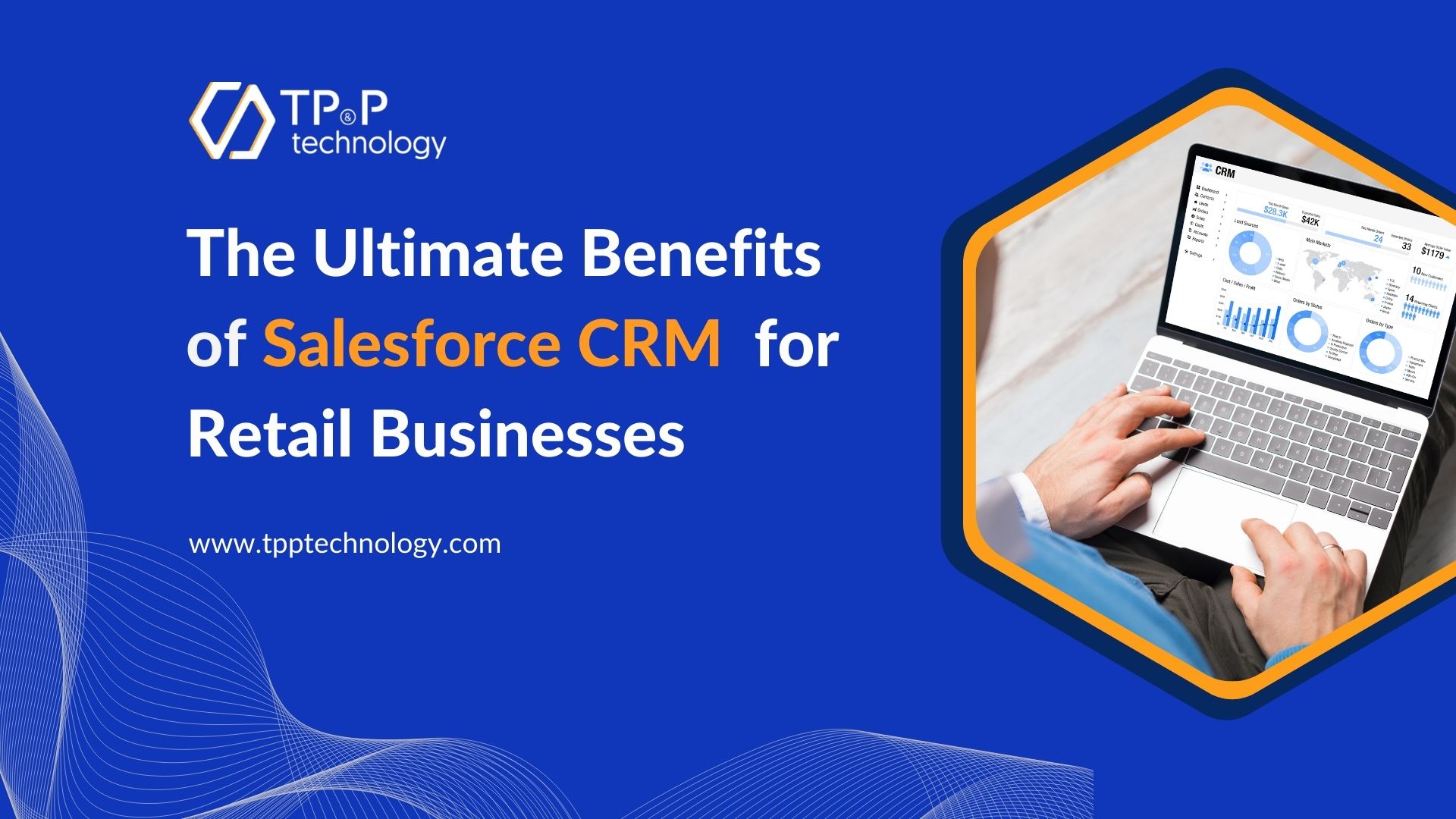
The Ultimate Benefits of Salesforce CRM for Retail Businesses
Since the onset of the pandemic, there have been significant changes in the world. Businesses have undergone considerable changes in their operations over the past two years. The present-day customers expect deliveries to be made to their doorstep, which has brought about a shift in their demands. This changing customer behavior has created opportunities for innovation in the retail industry.
The use of Salesforce CRM in the retail industry has given businesses the ability to provide their customers with highly accurate service. This solution has also assisted businesses in addressing concerns such as operational expenses, stock availability, transportation difficulties, and other related issues.
Salesforce CRM For Retail Reinvent Business Objectives Through Innovative Platform
Using an agile workflow, CRM technology effectively helps business organizations manage the retail industry by improving operational efficiency and expanding the customer base. Salesforce software tailored to the retail sector harnesses the power of cloud-based capabilities to engage with customers, generate leads, and boost sales.
Through constant connectivity and 24/7 service, these software solutions enable personalized customer experiences. Collaborative efforts across various departments such as sales, marketing, store management, inventory, supply chain, and customer service result in higher customer satisfaction and increased revenue for retail businesses.
The integration of order management across multiple channels also facilitates smarter service delivery and strengthens customer loyalty. In the retail ecosystem, big data plays a critical role in overcoming market challenges and optimizing business processes. By managing customer data and predicting their buying habits, the retail sales process is enhanced.
Targeted marketing strategies utilize customer interactions to generate leads, and small-scale retailers and startup owners can leverage data analysis to promote their products or services through social media. By analyzing retail data, potential risk areas can be identified and revenue losses can be prevented. Customer purchasing data can aid in predicting future purchasing trends, identifying potential customers, and retaining loyal customers.
Retailers can gain a competitive advantage by analyzing store data to better understand product pricing and discounts and providing personalized experiences to customers. Utilizing customer data, retailers can create targeted marketing campaigns across various channels to enhance the customer experience. The use of scalable and advanced cloud-based solutions in Salesforce CRM for retail businesses can improve productivity and facilitate deal closure.
How CRM Can Help Business Retailers?
1. Personalization
Salesforce CRM enables retailers to gather and retain comprehensive details about their customers, such as their preferences, purchase records, and interactions with customer support. These details can be utilized to individualize the customer's experience by presenting tailored product suggestions or delivering tailored customer service.
2. Segmentation
With Salesforce CRM, retailers can divide their customer base into distinct segments based on various factors, such as past purchases, demographics, or behaviour. This approach can assist retailers in aiming at specific customer groups with more fitting marketing communications and promotional offers.
3. Omnichannel customer service
By leveraging Salesforce CRM, retailers can deliver a consistent and uninterrupted customer service experience through numerous communication channels, including phone, email, and social media. This technology allows retailers to aggregate customer information and conversations in a single location, facilitating access and updates for customer service representatives, regardless of the channel that the customer is utilizing.
4. Data-Driven Decision-Making
The Salesforce CRM platform contains built-in reporting and analytical tools that supply retailers with valuable intelligence on customer actions, purchasing history, and the success of marketing campaigns. Retailers can leverage this data to make informed decisions based on data-driven insights, such as modifying inventory levels or refining marketing strategies for maximum effectiveness.
5. Automation
Salesforce CRM comes with automation capabilities that can take care of routine tasks, such as sending follow-up emails or updating customer records, thereby enabling retailers to enhance efficiency and save time.
6. Mobile-friendly
Salesforce CRM is intended to be easily accessible on mobile devices, allowing retailers to access customer information and execute tasks while on the move.
The mentioned benefits of Salesforce CRM for retailers are just a few examples, as the extent to which it improves the customer experience depends on how effectively it is customized and implemented based on the company's specific needs.
Building Trust Through Optimized Customer Interactions
Collaboration in groups
In the retail industry, achieving broader business objectives involves fostering seamless collaboration among in-house sales, service, and marketing associates. Bringing on trained employees as part of the existing workforce can help reduce administrative tasks and enable the company to focus on customer-oriented goals. To enhance customer satisfaction, CRM software facilitates coordinated interactions between teams by connecting store operations across multiple channels.
Online shopping experiences that are tailored to you
CRM solutions designed for online retail provide customized shopping experiences by tailoring interactions to each shopper. This can involve communicating with customers through one-on-one emails, messages, or phone calls to generate more leads and increase conversion rates. Personalized customer journeys are especially effective in the retail sector, where they can significantly increase sales revenue and provide a positive return on investment (ROI).
Integration of the supply chain and order management
The utilization of CRM in the retail sector specifically targets the supply chain logistics, including procurement, transportation, warehousing, inventory management, packaging, and distribution of goods, with the goal of satisfying customer needs and demands. An online retail platform, operating on the cloud, can simplify the management of suppliers, vendors, store owners, and delivery personnel through mobile devices and various channels, resulting in seamless transactions, simplified billing, and automated invoice generation. Salesforce CRM enhances sales and profitability in the retail industry by organizing customer data and promoting products and services systematically, fostering long-term client relationships
The retail industry has experienced fluctuations due to the Covid-19 pandemic. Consumer buying patterns and demands have decreased, resulting in a decrease in global retail sales. Currently, retailers are facing challenges such as high operating costs, product unavailability, and transportation issues. To overcome these disruptions and increase consumer confidence in the retail business, retailers can implement digital transformation and adopt omnichannel, cloud-based CRM strategies.
Conclusion
In conclusion, Salesforce for Retail is a comprehensive suite of solutions designed to support retail businesses in managing their day-to-day operations and enhancing customer engagement. Leveraging the powerful Salesforce platform, this suite offers a wide range of tools for inventory management, sales tracking, customer data analysis, and marketing automation, among others. Whether it is a specialty retailer in fashion, footwear, or home goods, the suite can be customized to meet the specific needs and challenges of various types of retailers.
Contact TPP Software today to learn how we can help businesses streamline operations, enhance customer satisfaction, and achieve growth objectives with greater efficiency and agility.



